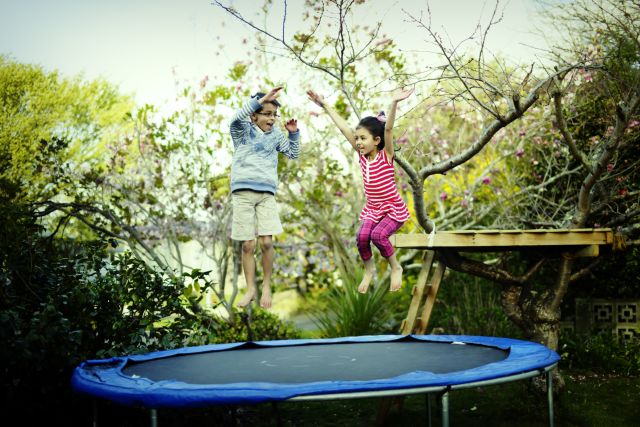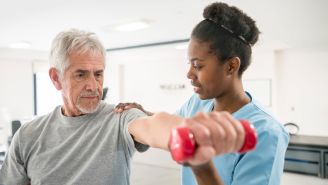My friend’s first unfortunate mistake: Ignoring the broken ash-catcher on the bottom of his ancient Weber grill, which was loose enough to allow an ember to slip through. His second mistake: Grilling on the deck, rather than in the back yard. Add the two together and you have a tragic equation: A three-alarm fire that damaged the entire back half of his Florida home.
Grilling isn’t the only way summer fun can suddenly turn dangerous. Here’s a checklist to make sure your entire backyard is as safe as your living room.
- Grills: Make sure your grill is in good working order. Don’t use your barbecue on a flammable surface. And don’t grill too close to the house. Close grill vents and douse coals with water when you’re done if you don’t plan to keep an eye on them.
- Playground equipment: Follow installation instructions carefully when setting up swing sets, climbing structures and slides. Avoid equipment made out of pressure-treated wood, which can contain chemicals and toxins. To make sure falls don’t cause anything more serious than a cut or scrape, lay a soft surface as wood chips or rubber underneath play areas. And never leave toddlers and young children alone on play structures or in kiddie pools.
- Trampolines: According to the Consumer Product Safety Commission, trampoline injuries account for more than 100,000 emergency room visits each year. If you decide to buy a trampoline or if you already have one, make sure to install a safety net and enforce trampoline safety rules. The most important rule of all: Only one jumper allowed at a time.
- Porches and decks: Young children can fall through or become trapped if railing slats are spaced too far apart. Use safety netting to line railings and fences or add lattice or extra boards to close up gaps. Check fences for loose hardware, splinters, sharp edges and missing slats, and make sure pickets are less than 5 inches apart. For young children, install childproof gates at the top and bottom of stairs.
- Lawn and garden tools: Saws, pruning shears, mowers and power tools can be especially dangerous. Store gardening equipment in a shed or garage with a door, secured with a lock or childproof latch. And wear safety goggles when you mow grass or trim bushes; about 2.5 million eye injuries occur each year in the U.S., and half of these happen around the home.
- Chemicals: Store fertilizers, weed killers and other toxic chemicals out of children’s reach. Don’t forget swimming pool cleansers and disinfectants and fuels used for grills and stoves, too.
Even if you do everything right, accidents can happen, so be prepared. Along with a first aid kit, keep important numbers, such as the Poison Control Center (1-800-222-1222) handy. If you’re an Android user, download the free S.O.S. app. Developed by the Red Cross and Sharecare, it provides easy-to-follow first aid videos plus instant access to 911 from anywhere in the world—including your own backyard.






